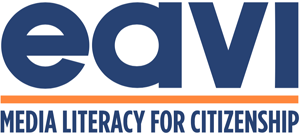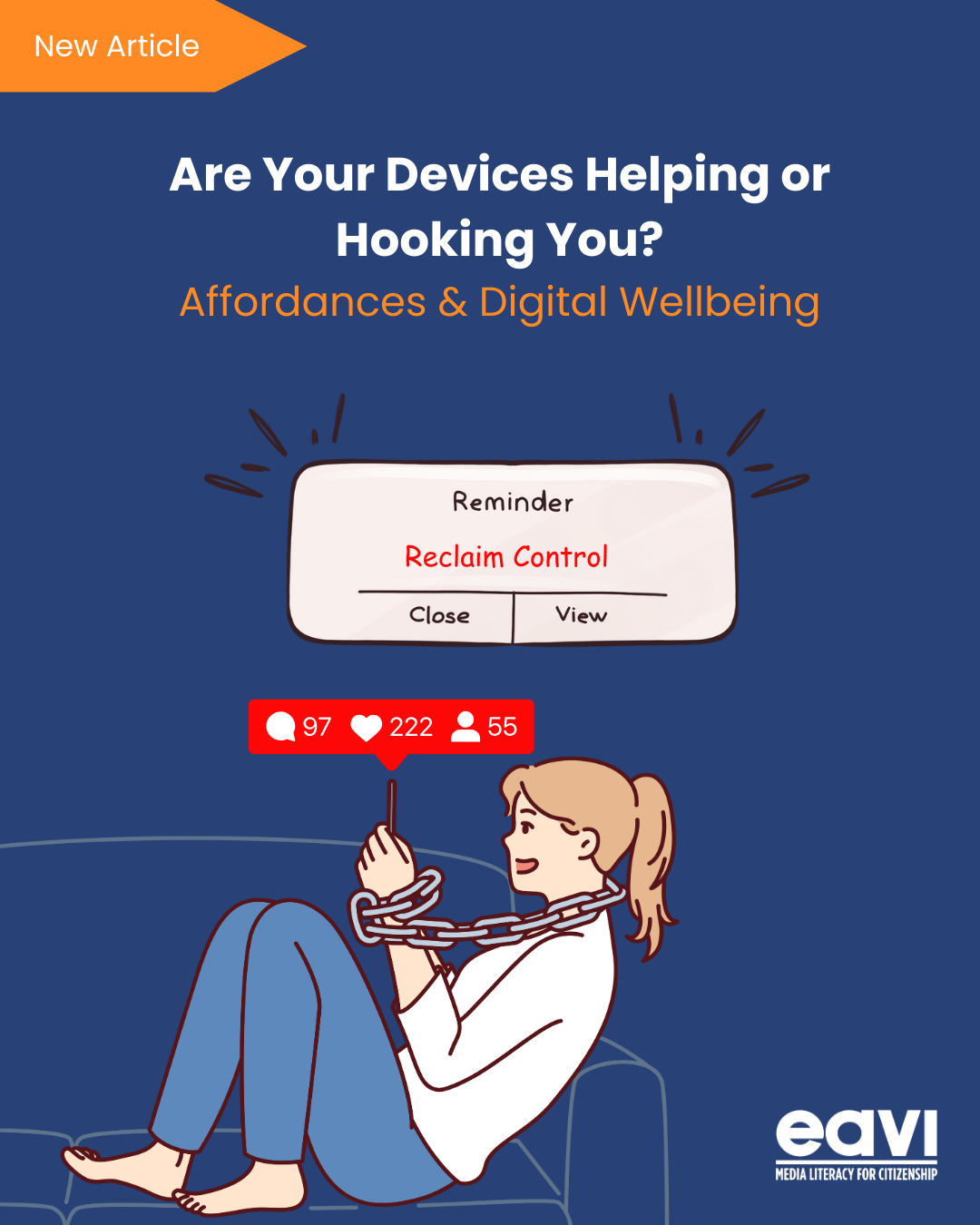On the 10th of April, we were invited to a short presentation on the new transparency rules that Facebook is introducing in Europe in the run up to the European Elections. This is Facebook’s step in ‘’protecting integrity’’ and cracking down on fake accounts. It also aims to tackle cross-border interference, or at least make it much more difficult to do so.
Generally, the work in tackling content on Facebook begins approximately 18 months before an electorate cycle. Of course, this depends also on the cycle of the particular election.
Facebook now have 30,000 people monitoring fake accounts and 99.6% are identified by AI tools and taken down even before they are reported by users. Third-party fact checkers are being used across the EU and is currently done in 8 different languages, plus English. There are plans to include 6 more languages in the next 6 months. Once questionable content and click-bait has been identified, its visibility is demoted by 80%. There is also a machine learning tool that looks at flagged content constantly. It works by then checking similar content and sensationalized titles.
The initiatives are not only taking place online but also off-line through media literacy programmes like the Digital Literacy Library. This is also done on a national and local level and they are currently working with the Polish government to role out a media literacy programme there.
There are five steps in their new agenda:
- Make advertising more transparent – this is where the ads library comes in
- Disrupting bad actors – in identifying bad actors there are threat analysis teams off and on platform working with civil society organisations like the Strategic Dialogue Platform in the UK.
- Supporting an informed electorate – voting reminders will appear on the platform and will only direct users to official and accurate information
- Cracking down on fake accounts
- Reducing distribution of false news
The Transparency Ads Library has existed since last summer. There has been a tool on Facebook called the ‘info and ads’ section where users can overview their ads. They have now evolved this and turned the Ads library into a big data base of all ads under the following categories:
- Immigration
- Political values
- Civil and social rights
- Security and foreign policy
- Economy
- Environmental politics
These topics were decided following a Eurobarometer survey.
Everyone advertising in any of these area’s must now go through an extensive set of verification steps. The data submitted through the verification steps will only be kept for 30 days and then deleted.
The biggest change however is that no one individual advertiser can be registered in more than one EU country. Each body who wishes to run an advertising campaign in any of the mentioned topics above, must have a representative in each EU country that they want to advertise in.
The aim of this is to make it extremely difficult and therefore not worthwhile for individuals that want to set up fake accounts or disrupt the democratic or electoral process in some way. For instance, most people do it for a financial gain, so the aim is to take this gain away.
Each advertiser must provide extensive information about their funding and it will be displayed on each post. Each advertisement will also have a button that will provide more information about the funder and the source of the information and campaign. The disclaimer will include all information about who is paying for the particular campaign.
This applies for all actors from civil society and think-tanks to advertisers. It also applies to Instagram.
So to reiterate the main changes here; each body looking to advertise must have an individual or offices located in each state with a verified address, email and phone number in order to run a campaign in that country. One credit card can be used for one organisation running in numerous states, but each account must be in local currency.
In the EU there is no funders registry so Facebook will not be verifying the funders.
The Library will be an entire searchable database for ads. Normal ads will also be there but will disappear at the end of their cycle unlike the ads in the categories mentioned above. These will be kept in the transparency library for seven years.
The Ad library API will also allow flexibility for researchers to use the data but will need to be able to use code to an extent. You need to apply for access to this and also be verified.
In May there will be the first ads report with the aggregated spend per country however, it will not show impressions.
In one good move, there will now be a function that will allow for advertisers to use profanity filters and you can block particular words. The person who writes a particular word that has been blocked will be able to see it, but it will be blocked from the feed on the advert and from other users.
There is also a new customer support center for advertisers who will need direct contact with a support team.
So, in conclusion, it is difficult to say how this might be received across Europe. It will interesting to see how this changes the process of advertising and especially for those small organisations that do not have the resources or numbers to now campaign across Europe. Facebook might make be making it harder for cross-country interference and fake accounts, but they are also making it hard for advertisers who now may only be limited to advertising in their base country unless they have the numbers and money to pay people in 28 member states to manage their advertising accounts…
When I asked a fellow participant (working in advertising) what he was going to do, he simply said ‘’leave Facebook and move to YouTube’’.
That potentially will sum up many people’s attitude…
On the 10th of April, we were invited to a short presentation on the new transparency rules that Facebook is introducing in Europe in the run up to the European Elections. This is Facebook’s step in ‘’protecting integrity’’ and cracking down on fake accounts. It also aims to tackle cross-border interference, or at least make it much more difficult to do so.
Generally, the work in tackling content on Facebook begins approximately 18 months before an electorate cycle. Of course, this depends also on the cycle of the particular election.
Facebook now have 30,000 people monitoring fake accounts and 99.6% are identified by AI tools and taken down even before they are reported by users. Third-party fact checkers are being used across the EU and is currently done in 8 different languages, plus English. There are plans to include 6 more languages in the next 6 months. Once questionable content and click-bait has been identified, its visibility is demoted by 80%. There is also a machine learning tool that looks at flagged content constantly. It works by then checking similar content and sensationalized titles.
The initiatives are not only taking place online but also off-line through media literacy programmes like the Digital Literacy Library. This is also done on a national and local level and they are currently working with the Polish government to role out a media literacy programme there.
There are five steps in their new agenda:
- Make advertising more transparent – this is where the ads library comes in
- Disrupting bad actors – in identifying bad actors there are threat analysis teams off and on platform working with civil society organisations like the Strategic Dialogue Platform in the UK.
- Supporting an informed electorate – voting reminders will appear on the platform and will only direct users to official and accurate information
- Cracking down on fake accounts
- Reducing distribution of false news
The Transparency Ads Library has existed since last summer. There has been a tool on Facebook called the ‘info and ads’ section where users can overview their ads. They have now evolved this and turned the Ads library into a big data base of all ads under the following categories:
- Immigration
- Political values
- Civil and social rights
- Security and foreign policy
- Economy
- Environmental politics
These topics were decided following a Eurobarometer survey.
Everyone advertising in any of these area’s must now go through an extensive set of verification steps. The data submitted through the verification steps will only be kept for 30 days and then deleted.
The biggest change however is that no one individual advertiser can be registered in more than one EU country. Each body who wishes to run an advertising campaign in any of the mentioned topics above, must have a representative in each EU country that they want to advertise in.
The aim of this is to make it extremely difficult and therefore not worthwhile for individuals that want to set up fake accounts or disrupt the democratic or electoral process in some way. For instance, most people do it for a financial gain, so the aim is to take this gain away.
Each advertiser must provide extensive information about their funding and it will be displayed on each post. Each advertisement will also have a button that will provide more information about the funder and the source of the information and campaign. The disclaimer will include all information about who is paying for the particular campaign.
This applies for all actors from civil society and think-tanks to advertisers. It also applies to Instagram.
So to reiterate the main changes here; each body looking to advertise must have an individual or offices located in each state with a verified address, email and phone number in order to run a campaign in that country. One credit card can be used for one organisation running in numerous states, but each account must be in local currency.
In the EU there is no funders registry so Facebook will not be verifying the funders.
The Library will be an entire searchable database for ads. Normal ads will also be there but will disappear at the end of their cycle unlike the ads in the categories mentioned above. These will be kept in the transparency library for seven years.
The Ad library API will also allow flexibility for researchers to use the data but will need to be able to use code to an extent. You need to apply for access to this and also be verified.
In May there will be the first ads report with the aggregated spend per country however, it will not show impressions.
In one good move, there will now be a function that will allow for advertisers to use profanity filters and you can block particular words. The person who writes a particular word that has been blocked will be able to see it, but it will be blocked from the feed on the advert and from other users.
There is also a new customer support center for advertisers who will need direct contact with a support team.
So, in conclusion, it is difficult to say how this might be received across Europe. It will interesting to see how this changes the process of advertising and especially for those small organisations that do not have the resources or numbers to now campaign across Europe. Facebook might make be making it harder for cross-country interference and fake accounts, but they are also making it hard for advertisers who now may only be limited to advertising in their base country unless they have the numbers and money to pay people in 28 member states to manage their advertising accounts…
When I asked a fellow participant (working in advertising) what he was going to do, he simply said ‘’leave Facebook and move to YouTube’’.
That potentially will sum up many people’s attitude…
On the 10th of April, we were invited to a short presentation on the new transparency rules that Facebook is introducing in Europe in the run up to the European Elections. This is Facebook’s step in ‘’protecting integrity’’ and cracking down on fake accounts. It also aims to tackle cross-border interference, or at least make it much more difficult to do so.
Generally, the work in tackling content on Facebook begins approximately 18 months before an electorate cycle. Of course, this depends also on the cycle of the particular election.
Facebook now have 30,000 people monitoring fake accounts and 99.6% are identified by AI tools and taken down even before they are reported by users. Third-party fact checkers are being used across the EU and is currently done in 8 different languages, plus English. There are plans to include 6 more languages in the next 6 months. Once questionable content and click-bait has been identified, its visibility is demoted by 80%. There is also a machine learning tool that looks at flagged content constantly. It works by then checking similar content and sensationalized titles.
The initiatives are not only taking place online but also off-line through media literacy programmes like the Digital Literacy Library. This is also done on a national and local level and they are currently working with the Polish government to role out a media literacy programme there.
There are five steps in their new agenda:
- Make advertising more transparent – this is where the ads library comes in
- Disrupting bad actors – in identifying bad actors there are threat analysis teams off and on platform working with civil society organisations like the Strategic Dialogue Platform in the UK.
- Supporting an informed electorate – voting reminders will appear on the platform and will only direct users to official and accurate information
- Cracking down on fake accounts
- Reducing distribution of false news
The Transparency Ads Library has existed since last summer. There has been a tool on Facebook called the ‘info and ads’ section where users can overview their ads. They have now evolved this and turned the Ads library into a big data base of all ads under the following categories:
- Immigration
- Political values
- Civil and social rights
- Security and foreign policy
- Economy
- Environmental politics
These topics were decided following a Eurobarometer survey.
Everyone advertising in any of these area’s must now go through an extensive set of verification steps. The data submitted through the verification steps will only be kept for 30 days and then deleted.
The biggest change however is that no one individual advertiser can be registered in more than one EU country. Each body who wishes to run an advertising campaign in any of the mentioned topics above, must have a representative in each EU country that they want to advertise in.
The aim of this is to make it extremely difficult and therefore not worthwhile for individuals that want to set up fake accounts or disrupt the democratic or electoral process in some way. For instance, most people do it for a financial gain, so the aim is to take this gain away.
Each advertiser must provide extensive information about their funding and it will be displayed on each post. Each advertisement will also have a button that will provide more information about the funder and the source of the information and campaign. The disclaimer will include all information about who is paying for the particular campaign.
This applies for all actors from civil society and think-tanks to advertisers. It also applies to Instagram.
So to reiterate the main changes here; each body looking to advertise must have an individual or offices located in each state with a verified address, email and phone number in order to run a campaign in that country. One credit card can be used for one organisation running in numerous states, but each account must be in local currency.
In the EU there is no funders registry so Facebook will not be verifying the funders.
The Library will be an entire searchable database for ads. Normal ads will also be there but will disappear at the end of their cycle unlike the ads in the categories mentioned above. These will be kept in the transparency library for seven years.
The Ad library API will also allow flexibility for researchers to use the data but will need to be able to use code to an extent. You need to apply for access to this and also be verified.
In May there will be the first ads report with the aggregated spend per country however, it will not show impressions.
In one good move, there will now be a function that will allow for advertisers to use profanity filters and you can block particular words. The person who writes a particular word that has been blocked will be able to see it, but it will be blocked from the feed on the advert and from other users.
There is also a new customer support center for advertisers who will need direct contact with a support team.
So, in conclusion, it is difficult to say how this might be received across Europe. It will interesting to see how this changes the process of advertising and especially for those small organisations that do not have the resources or numbers to now campaign across Europe. Facebook might make be making it harder for cross-country interference and fake accounts, but they are also making it hard for advertisers who now may only be limited to advertising in their base country unless they have the numbers and money to pay people in 28 member states to manage their advertising accounts…
When I asked a fellow participant (working in advertising) what he was going to do, he simply said ‘’leave Facebook and move to YouTube’’.
That potentially will sum up many people’s attitude…








































































































































































